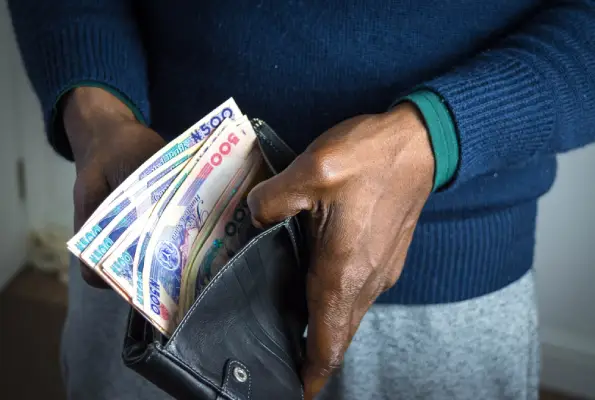Notwithstanding the nation’s economic changes under its new president Bola Tinubu, global ratings agency Fitch has upgraded Nigeria’s outlook from stable to positive.
Bola Tinubu has implemented extensive reforms since entering office around a year ago. These include cutting back on pricey gasoline and power subsidies and depreciating the naira twice a year to close the difference between the official and parallel market exchange rates.
The agency said in a statement that “the changes have minimised distortions originating from previous unorthodox monetary and exchange rate policies.”
Citing the possible impact of reforms, Moody’s and S&P both updated their outlooks for Nigeria in 2023. The African country has struggled with weak economic development, a dearth of dollars, a growing debt load, and pervasive insecurity.
Fitch did, however, highlight certain serious near-term issues, including the currency market’s unsteadiness and ongoing high inflation. To combat raging inflation, the central bank has increased its monetary policy rate by 600 basis points since 2024 beginning, apart from requesting that banks increase their minimum capital to fortify and improve the nation’s financial sector.
The organisation kept the African nation’s grade in the trash category at “B-.”
The update from Fitch comes after the disappointing forecast from the International Monetary Fund (IMF), which in April 2024 showed that Nigeria’s economy, ranked as Africa’s largest in 2022, was set to slip to fourth place this year and Egypt, which held the top position in 2023, falling to second behind South Africa after a series of currency devaluations.
The IMF’s World Economic Outlook estimated Nigeria’s GDP at USD 253 billion based on current prices in 2024, lagging energy-rich Algeria at USD 267 billion, Egypt at USD 348 billion and South Africa at USD 373 billion. The nation, dubbed as Africa’s most industrialised, will remain the continent’s largest economy until Egypt reclaims the mantle in 2027, while Nigeria is expected to remain in fourth place for years to come.
Nigeria and Egypt’s economic fortunes have dimmed in the last few months as they deal with high inflation and a plunge in their currencies.
Bola Tinubu has announced significant policy reforms since he became Nigeria’s president at the end of May 2023, including allowing the currency to float more freely, scrapping costly energy and gasoline subsidies and taking steps to address dollar shortages. Despite a recent rebound, the naira is still 50% weaker against the greenback than what it was prior to him taking office after two currency devaluations.



